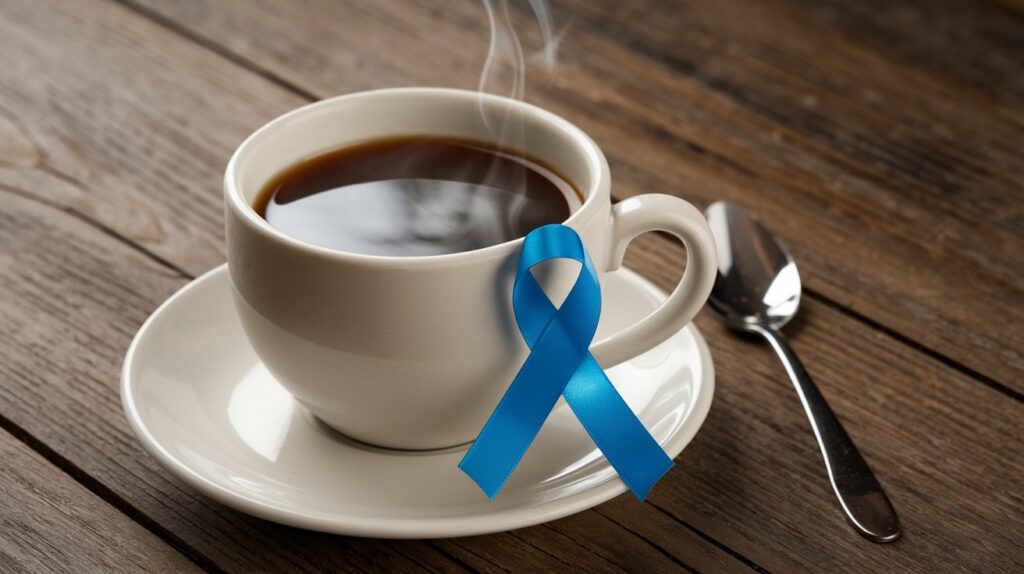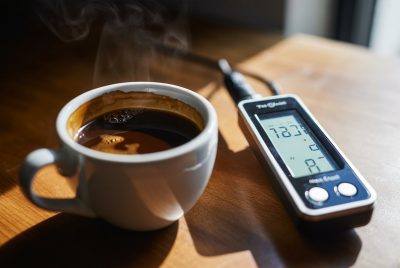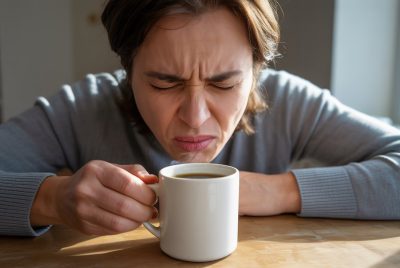Coffee & Mental Health: Understanding the Connection
*We may earn a commission for purchases made using our links. Please see our disclosure to learn more.
For years, I’ve been deeply interested in how nutrition influences mental health, and coffee has always stood out to me because of its unique impact on our psychological well-being. That morning cup of coffee is much more than just a comforting ritual, it’s a beverage that can have a powerful effect on our mood, energy levels, and overall mental state. Coffee has the ability to uplift us, but it can also lead to negative side effects if consumed in excess.
In this article, I’ll dive into the fascinating connection between coffee and mental health, sharing insights from scientific research and my own experiences. Whether you’re a casual coffee drinker or someone who relies on it daily, this exploration offers practical tips to help you make more informed choices about how coffee affects your mind and mood.
Key Takeaways
- Mood, alertness, and cognitive function: Moderate coffee consumption can enhance mood, improve alertness, and boost cognitive function, helping with focus and concentration.
- Complex relationship with anxiety: Coffee affects anxiety differently for each individual. For some, it may increase feelings of stress or restlessness, while others experience no negative effects.
- Potential protection against depression and neurodegenerative conditions: Regular coffee consumption has been linked to a reduced risk of depression and conditions like Alzheimer’s and Parkinson’s, possibly due to antioxidants and other beneficial compounds.
- Impact of timing and amount: The timing and amount of coffee consumed play a significant role in its mental health effects. Drinking coffee late in the day can disrupt sleep and increase anxiety, while morning intake generally boosts energy without negative side effects.
- Sensitivity to caffeine: People vary in their sensitivity to caffeine. Some individuals may experience anxiety or jitters with small amounts, while others can consume more without issue. Understanding personal sensitivity is key to determining how coffee affects mental well-being.
The Science Behind Coffee and Brain Function
Coffee’s impact on mental health primarily comes from its effects on brain chemistry, especially through caffeine. As a psychoactive substance, caffeine works by blocking adenosine receptors in the brain. Normally, adenosine promotes sleepiness and reduces arousal, but when these receptors are blocked, alertness increases and cognitive function improves. This is why that morning cup of coffee can help you feel more awake and focused.
But coffee isn’t just about caffeine. It’s also packed with antioxidants and bioactive compounds that may help protect brain cells from damage. Compounds like chlorogenic acid, trigonelline, and various polyphenols have been linked to better cognitive function and even potential neuroprotective effects. These compounds contribute to the long-term health of the brain, potentially reducing the risk of cognitive decline as we age.
The way coffee interacts with our brain is truly fascinating. Once caffeine enters the bloodstream, it doesn’t stop at blocking adenosine. It also triggers the release of important neurotransmitters like dopamine and norepinephrine, which play a key role in regulating mood, focus, and memory. This cascade of effects helps explain why coffee can boost attention, improve reaction time, and enhance overall cognitive performance. It’s not just about staying awake – coffee can also help sharpen the mind and improve mental clarity.
Coffee’s Impact on Mood and Depression
Research has shown a connection between regular coffee consumption and a reduced risk of depression. Studies consistently reveal that people who drink 2-3 cups of coffee daily are significantly less likely to experience depression compared to those who avoid coffee. For example, one study that tracked over 50,000 women for ten years found that those who consumed four or more cups of coffee each day had a 20% lower risk of developing depression. This suggests that coffee might play a key role in reducing the likelihood of mental health struggles, particularly depression.
Immediate Mood-Boosting Effects of Coffee
The benefits of coffee go beyond just preventing depression; they can also have an immediate, noticeable effect on mood. When you drink coffee, caffeine stimulates the release of dopamine and norepinephrine, neurotransmitters that help enhance mood, increase attention, and improve focus. These neurotransmitters are responsible for the uplifting and energizing feelings many people experience after their first cup of coffee. This mood boost helps many individuals feel more optimistic, focused, and ready to take on the day, making coffee an effective natural way to kickstart the morning.
The Timing of Coffee and Its Impact on Mood
Interestingly, the timing of your coffee intake can influence how it affects your mood. Morning coffee, in particular, seems to offer the most pronounced mood-enhancing benefits. This is likely because it aligns with our natural circadian rhythms and how caffeine interacts with our body’s cortisol production. Cortisol, a hormone that regulates alertness, tends to be higher in the morning. Consuming coffee during this time can boost your alertness and mood even further. Research has shown that timing your coffee intake, particularly in the late morning or early afternoon, can help optimize its mood-enhancing effects without interfering with your body’s natural energy patterns.
Long-Term Mood Benefits from Regular Coffee Consumption
Beyond the immediate mood boost, regular moderate coffee consumption is linked to long-term improvements in emotional stability and overall mood. Many people find that having a daily cup of coffee leads to a generally better outlook on life, enhancing both mental and emotional well-being. However, while coffee offers mood benefits for many, it’s important to recognize that the effects can vary from person to person. For some, coffee provides a significant boost, while for others, it may have minimal impact. Understanding your body’s response to coffee and adjusting consumption accordingly is essential for maximizing its benefits.
The Anxiety Connection

While coffee can improve mood for many people, it’s important to also consider its potential effects on anxiety. The relationship between coffee and anxiety varies greatly from person to person. Some individuals can drink multiple cups of coffee each day without experiencing any negative effects, while others may feel jittery or anxious after just one cup.
The key here is understanding your own sensitivity to caffeine. Factors such as genetics, existing anxiety conditions, and overall stress levels play a significant role in how caffeine affects your body. If you’re someone who tends to feel more anxious after coffee, it’s a good idea to monitor how much you drink and notice any patterns in how it influences your mental state.
Several genetic factors can influence how we metabolize caffeine, such as variations in the CYP1A2 gene. This helps explain why some people can drink coffee late in the day without feeling any negative side effects, while others might feel jittery even after a small afternoon cup. Understanding how your body responds to coffee can help you better manage your mental health.
Coffee and Sleep: A Delicate Balance
One of the most significant ways coffee impacts mental health is through its effect on sleep. Given my extensive study of sleep patterns, I can’t emphasize enough how crucial timing is when it comes to coffee consumption. The half-life of caffeine is around five hours, meaning that drinking coffee too late in the day can significantly disrupt sleep quality.
Poor sleep, in turn, can worsen mental health issues, creating a vicious cycle. To avoid this, it’s wise to refrain from drinking coffee at least 8 hours before bedtime. This gives your body enough time to metabolize the caffeine and ensures a more restful night’s sleep.
It’s also important to note that caffeine doesn’t only affect the time it takes to fall asleep. It can reduce the amount of deep sleep you get, which is critical for both physical and mental recovery. Even if you don’t feel the effects on sleep onset, subtle disruptions in sleep architecture can have long-term consequences for your mental health and cognitive function.
The Social Aspect of Coffee
The social benefits of coffee are often overlooked, but they play a vital role in our mental well-being. Coffee shops have long been community hubs, offering a space for people to gather, connect, and share conversations. Whether it’s a casual chat with a friend or a more in-depth discussion with colleagues, these interactions can foster a sense of belonging and reduce feelings of isolation. I’ve seen firsthand how these social moments, centered around coffee, can lift spirits and contribute positively to mental health.
The ritual of drinking coffee itself is therapeutic for many. The process of brewing your morning cup, or meeting up with others at a café, brings a sense of routine and predictability to the day. These small, comforting rituals can offer stability, especially in times of stress. Additionally, the sensory experience of coffee, from the rich aroma to the warmth of the cup in your hands, often triggers positive emotions, setting a peaceful tone for the day ahead.
Long-term Effects on Cognitive Health
One of the most exciting areas of research in recent years is coffee’s potential to protect against neurodegenerative diseases like Alzheimer’s and Parkinson’s. Several studies have suggested that regular coffee consumption may lower the risk of developing these conditions. The protective effects seem to come from both caffeine and the other bioactive compounds found in coffee, which work together to support brain health.
Recent studies have started to uncover the mechanisms behind these potential benefits. Coffee’s antioxidants, for example, help combat oxidative stress, which can contribute to brain cell damage. Additionally, coffee’s anti-inflammatory properties may reduce neuroinflammation, a factor involved in many neurological diseases. Some compounds in coffee have even been shown to help prevent the buildup of toxic proteins associated with neurodegenerative diseases, adding another layer of potential protection for the brain.
Beyond preventing disease, regular coffee consumption may also help maintain cognitive function as we age. Research has found that long-term coffee drinkers tend to have better memory retention and faster processing speeds compared to those who don’t drink coffee, even when controlling for other factors like exercise and diet. This suggests that coffee might not only be a short-term mood booster but also a long-term ally in preserving cognitive health.
Conclusion
After exploring coffee’s impact on mental health from different perspectives, it’s clear that coffee can offer both benefits and potential challenges when it comes to our well-being. The key is mindful consumption, understanding your own tolerance, paying attention to timing, and being aware of how coffee affects your mental state on a personal level.
For most people, moderate coffee consumption (around 2-4 cups per day) seems to have positive effects on mental health. This includes mood improvements, better cognitive function, and potential protection against certain mental health conditions. However, it’s important to tune into your body’s signals and adjust your coffee intake to suit your unique needs.
As with many aspects of health, the relationship between coffee and mental well-being varies from person to person. What works for one individual might not work for another. Finding the right balance requires experimentation and a good understanding of your body’s response.
Frequently Asked Questions
How much coffee is too much for mental health?
While everyone’s tolerance to caffeine is different, most research recommends keeping caffeine intake below 400mg per day (about 4 cups of coffee). Going beyond this amount can lead to anxiety, trouble sleeping, and other mental health concerns. Pay attention to how your body reacts and adjust accordingly.
Can coffee actually help with depression?
Yes, studies suggest that regular coffee consumption may reduce the risk of developing depression. Several studies have shown that moderate coffee drinkers tend to experience lower depression rates. However, coffee shouldn’t replace professional treatment for mental health issues or medications.
How long should I wait between my last cup of coffee and bedtime?
It’s best to avoid coffee at least 8 hours before going to bed to prevent disrupting sleep. Some people may need a longer break, depending on their caffeine sensitivity. Pay attention to your sleep quality and adjust the timing of your last cup based on your experience.
Does decaf coffee provide any mental health benefits?
Yes, decaf coffee still contains beneficial compounds like antioxidants, which can support brain health. However, the immediate cognitive benefits won’t be as noticeable since it lacks caffeine. Still, the long-term benefits from its bioactive compounds are worth considering.
Can coffee make anxiety worse?
For some people, coffee can exacerbate anxiety, particularly if consumed in large quantities or if the individual is sensitive to caffeine. If you have anxiety, start with small amounts and monitor how it affects you. It may also help to consider factors like the time of day, food intake, and stress levels when assessing how coffee impacts your anxiety. If necessary, speak with a healthcare provider to better understand the effects.




